Which is the healthiest tea to drink?
Teas are one of the most versatile drinks in the world.
- Got a cold? Drink some hot tea.
- Stressed out? Drink some Chamomile tea.
- Want to get snug in the rain? Have a glass of Ginger tea.
It is a drink that is consumed throughout the world in various different forms. There’s Black tea, dark tea, White tea, Green tea, Oolong tea, Pu-erh tea, Yellow tea, and many more. But, is there any tea that you could call the healthiest tea in the world?
The answer isn't straightforward. Every tea is unique and with so many variations that exist today, it's important to understand the history of tea and the different types of tea that exist in the market before declaring any single type of tea as the healthiest.
Contents
History of tea: One of the healthiest and most popular beverage
There are various theories about the origin of the tea, but the most popular one is that tea originated in ancient China under the Shang dynasty. Legend has it that tea was discovered when the Emperor Shen Nong, accidentally discovered tea. While heating water in the backyard, a leaf from a tree drifted and landed in his pot. Emperor fancied drinking the tea so much that he was compelled to research the plant further.
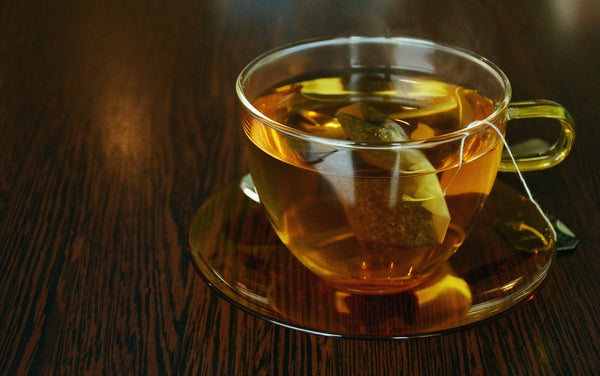
But it was not until the Tang dynasty that the consumption of tea became widespread. The era that followed came to be known as the romantic era of tea. Tea then spread to the rest of the world like wildfire. A Japanese monk by the name Saicho is credited with introducing tea to Japan. While studying in China, Saicho fell in love with tea and brought back seeds to grow at his monastery.
Missionaries, traders, and explorers travelling to China from Europe became exposed to the blooming tea traditions in Japan and China. Despite this, tea didn't make a significant breakthrough in the west until the 17th century. Tea also entered Russia through Camel trains from China. The popularity of drinking tea quickly spread to London, Amsterdam, and Paris, but it was limited to the aristocracy and the upper-class part of the population.
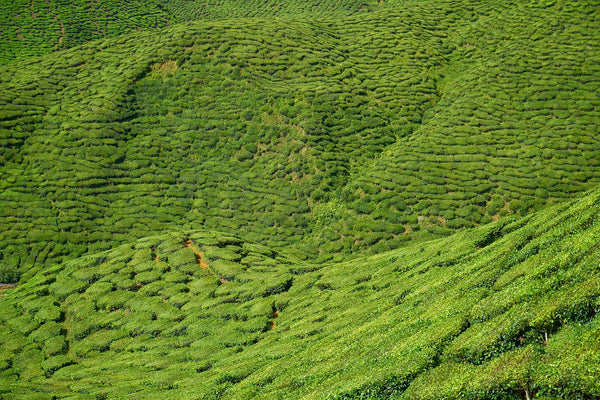
The English folk did not gravitate towards tea immediately. Coffee houses were popular then, and coffee remained the preferred drink of choice. Tea gained popularity there when Charles II married Catherine of Braganza, a royal from Portugal who loved tea.
The British East India Company established itself as a dominant trading entity and went on to control monopoly over tea trade in China during the early 1700s. Trading stations sprung up in Bombay, Bengal, and Madras.
You might be wondering why we are talking about the history of tea. It’s because of this mighty history, today tea is the most popular beverage after water.
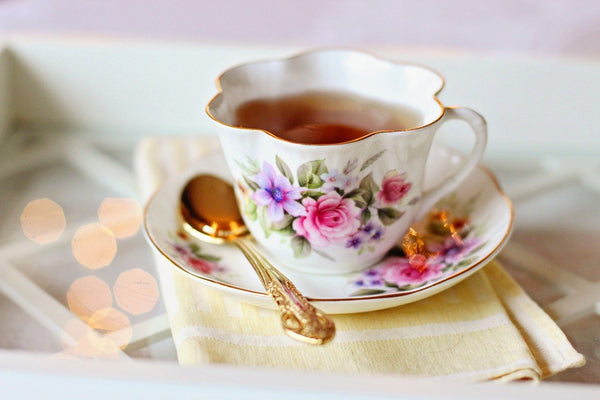
Now that we know about the history of tea and the various different kinds of tea, let's look at the benefits of drinking tea.
Benefits of drinking tea
Drinking tea has numerous health benefits. Here is a list of health benefits that you can avail by drinking a cup or two of tea every day:
- The antioxidants present in tea helps keep our body young and healthy. Antioxidants protect us from the body's rust, thus keeping us youthful and protect us from pollution and damage
- Studies have found that tea can reduce the risk of heart attacks and strokes. Drinking tea lowers the levels of bad cholesterol in the body
- Green tea is advertised as a weight loss product. Studies suggest that it may be true. Fri green tea may reduce bloating and aid in weight loss
- Tea may also boost the immune system. Holy basil tea, popularly known as Tulsi tea is known to boost the immune system and has been used in traditional Indian medicine to cure fever and cold
- Certain herbal teas are also good laxatives and may aid in digestion. Drinking herbal tea can improve bowel movements and also cure diarrhoea
- Improves sleep. Drinking camomile tea reduces stress and soothes the body. This results in better sleep and can cure insomnia. Sipping hot tea after a tiring day can relax the body and provide peace of mind
- Tea may help protect your bones. Certain studies indicate that consuming green tea may prevent bone loss. Moringa tea is rich in vitamins A and K and has more calcium content than milk. So drinking this tea is a good way to keep your bones healthy
You might have noticed that we talked about multiple varieties of tea while talking about the benefits. Did it get you wondering — how there are so many different varieties of tea, although it comes from the same leaves? Well, the difference between the many different varieties of tea found in the market boils down to the leaves/herbs/flowers used to prepare the tea, the tea growing process and the difference in the processing method.
Let's now understand the two broad categories in which all the tea in the world is divided.
True tea vs. Herbal tisanes
There are two types of teas namely herbal teas and true teas. All true teas are derived from the Camellia sinensis plant. True teas include green tea, white tea, black tea, and oolong tea.
Herbal teas, on the other hand, are made using spices, flowers, leaves of various different plants and herbs. True teas, even though they come from the same plant, are different due to their oxidation and fermentation process. Green tea and white teas are not oxidized and are simply allowed to dry after harvesting. The leaves are dried either under the sun or by pan-frying.

Oolong tea is partially oxidized while black teas are fully oxidized. In general, teas that are fully oxidized such as black tea will develop a stronger taste and aroma, while white and green teas will possess a more delicate flavour.
Now, you may be wondering what is the difference between true teas and herbal teas? Who decides which tea is true? It all started back when the need arose to differentiate black tea from the rest of the teas. When the East India Company wanted to sell black tea in Britain, they needed a way to differentiate black tea from other herbal teas. Back then, herbal teas were already present in Europe. But once black teas and other teas derived from the Camellia sinensis plant were introduced into Europe, there arose a need to differentiate it from the already existing tea and create a market for it.
As mentioned earlier, the difference only lies in the way the teas are oxidized and fermented. True teas are teas that are made from the leaves of Camellia sinensis plant and Camellia Assamica which is a close relative of the former. The leaves of these plants are picked, oxidized or rolled and bruised.
Herbal tea, on the other hand, is not as processed as true teas. Herbal teas are not made using the leaves of Camellia sinensis plant, instead, they are made using spices, flowers, and leaves of various plants.
A major difference between the two types of tea is that herbal tea do not contain caffeine whereas true tea contains caffeine. Another differentiator is that true teas are limited and their taste comes from their processing, whereas herbal teas can be made by a variety of ingredients, hence come in various different tastes and types.
But both these teas offer different kinds of experience and we don't have to pick sides. Enjoy the tea which is best suited for you, but also try different types of tea for a wider experience.
Nine healthy teas to include in your diet
Here is a list of some of the healthiest teas and the benefits of consuming them. In this list, you will find true teas as well as herbal teas.
1. Green tea
Green tea is a type of true tea, that is derived from the Camellia Sinensis plant. Green teas are not oxidized and are allowed to dry under the sun or pan-dried. Green tea is considered to be one of the healthiest teas in the world. It is rich in antioxidants and contains bioactive components that improve health. It contains caffeine that can improve focus and brainpower. It also increases fat burning. Hence, it is a great way to lose belly fat. Some studies also suggest that green tea can prevent certain types of cancer. So be it for weight loss or for better health, green tea is the drink of choice.
Our recommendation:
Try teakruthi's Green Valley Pure Ceylon Green tea from the famous Dimbulla region of Sri Lanka. This green tea is rich and strong in flavour, appears yellow in the cup, and offers a sensational tasting experience. It aids in fat loss, reduces the risk of Alzheimer's / Parkinson's disease and has anti-inflammatory properties.
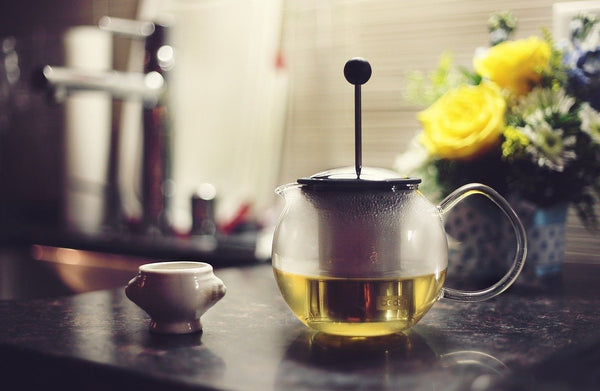
2. Black tea
Black tea is a true tea. But unlike green tea and oolong tea, it is fully oxidized, which gives it a stronger flavour. Black tea has antioxidants that reduce cell damage in the body and prevents the body from rusting. Consuming black tea on a regular basis may improve heart health and reduce the risk of high blood pressure and cholesterol. It may also lower blood sugar levels and improve gut health.
Our recommendation:
Try teakruthi's Organic Gold Pure Ceylon Black tea. The tea is processed without any fertilizers using only organic methods of farming which make it one of the healthiest teas in the market. The anti-oxidants present in it reduce the risk of cancer, reduce cholesterol levels and prevent heart disease. It's the perfect tea to sip on during day or evening as it helps in increasing mental alertness.
3. Oolong tea
Oolong tea is partially oxidized true tea. It is a traditional Chinese tea. It may not be as well known as green tea or black tea, but has health benefits that are very similar. Similar to the other true teas, oolong tea has a lot of nutrients, minerals, and antioxidants. The polyphenol antioxidants found in oolong tea may help lower blood sugar levels. Just like the other two teas above, oolong tea may also improve heart health and lower bad cholesterol. It may also aid in weight loss and reduce bloating.
Our recommendation:
Try teakruthi's Pure Oolong tea which is certified 'ozone-friendly' and loaded with anti-oxidants making it good for you as well as the environment. It's especially effective for fat loss and for the prevention of diabetes.
Also read — How to drink Oolong tea for weight loss?
4. White tea
White tea is a type of true tea just like the above teas. But unlike black and oolong tea, it is not oxidized. Hence, it has a lighter flavour. White teas also have similar benefits like the above-mentioned teas. But apart from aiding in weight loss, improving heart health, lowering blood sugar and cholesterol levels, white tea also has certain other benefits that are surprising.
According to a study conducted at Kingston University in London, white tea can prevent acne. This is because the antioxidants in white tea flush out toxins from the body. It also improves hair and skin health and might be beneficial during pregnancy. White tea contains fluorides and tannins which improves dental health.
Our recommendation:
teakurthi's Ceylon Ivory White tea is fresh, light, mild, and nutty in flavour, and appears pale yellow. This tea offers a pure drinking experience that is delicate in both flavour and aroma. It has special benefits for the skin and helps in rejuvenation of skin and prevention of acne.
5. Jasmine tea
Jasmine is referred to as a gift from God for all the right reasons. Jasmine has numerous health benefits. Jasmine is an antidepressant and drinking Jasmine tea provides relief from stress. It also has antiviral and antibacterial properties that protect the body from diseases. Pure Jasmine tea is a herbal tea. However, Jasmine green tea is a heavenly combination and is a good way to combine the benefits of green tea along with Jasmine.
6. Hibiscus tea
Hibiscus tea is a herbal tea loaded with antioxidants that fight free radicals in your body. Research shows that it may help lower blood pressure and also lower blood fat levels, improving heart health. Hibiscus may also boost liver health and keep it functioning smoothly. Drinking hibiscus tea may also promote weight loss. But what's best is that it is highly flavourful and easy to make.
7. Chamomile tea
Apart from the general benefits of drinking tea mentioned above, chamomile tea also has various other health benefits. Several studies have found that consuming chamomile tea may reduce menstrual cramps in women. It can also slow down or prevent osteoporosis or loss of bone density in postmenopausal women. Drinking chamomile tea after a long and tiresome day will calm you down and reduce stress. It is herbal tea also known to treat mild skin conditions.
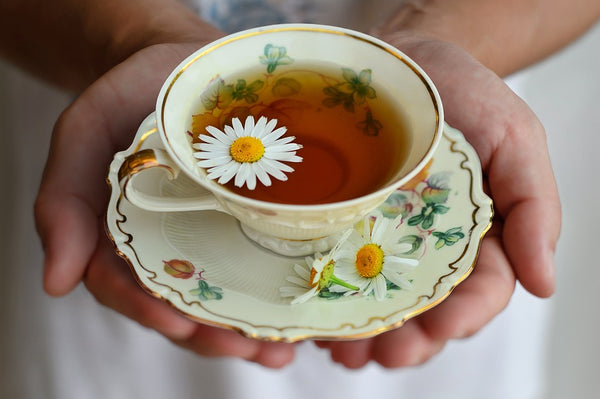
8. Peppermint tea
Peppermint can cure IBL and may relieve digestive symptoms such as gas, indigestion and bloating. Drinking peppermint tea may also provide relief from migraines and headaches. Mint is a mouth freshener and drinking peppermint tea can kill germs that cause dental plaque. It might also aid in weight loss and the rosmarinic acid in peppermint may also improve seasonal allergies. You can drink pure peppermint herbal tea or include peppermint to black tea.
Our recommendation:
teakruthi's Zen Mint infusion was harvested from the Kandy District and refined in a factory established there in 1950. Kandy was the last redoubt of the Sri Lankan Kings. When you sip this tea, enriched with mint leaves and orange in colour, you will take a walk through time.
9. Ginger tea
Ginger tea is one of my all-time favourite teas. It can cure a cold and prevent you from catching the flu. It is also a laxative that aids in digestion. It strengthens the immune system and relieves nausea and stress. Ginger tea can also fight respiratory problems and reduce inflammation in the body. It is best enjoyed with a hot plate of fritters. You can prepare the lemon, honey, and ginger tea if you want to stay away from caffeine. If you like black tea, you can choose to drink ginger black tea.
Our recommendation:
teakruthi's Two Seasons Black tea infusion has ginger root and peach. Brewing to a deep copper in your cup, this tea is brimming with a tantalizing blend of spicy, floral, and woody notes that are exclusively designed to exhilarate your taste buds while bringing peace to your mind.
Frequently Asked Questions (FAQ) about tea and its health benefits
Q: Is tea dehydrating?
Some types of tea contain caffeine. Caffeine once ingested, passes into the bloodstream and enters the liver. There it is broken down into various compounds. Caffeine is a diuretic substrate that makes your body produce more urine, thus encouraging your kidneys to flush out water more often. This may cause you to urinate more frequently which may make you feel dehydrated if consumed in large quantities. Hence, limit your consumption of tea to one or two cups per day.
Q: Are there any teas that should be avoided?
Stay away from detox teas that contain Senna leaves as they are known to irritate the lining of the bowels. Consuming it regularly will have adverse effects. It is advised not to drink Comfrey tea as when consumed regularly, it can cause severe damage to the liver. Don't drink kava as it has sedative qualities. I would also suggest you stay away from tea that has steeped too long.
Q: Is sweet tea bad for you?
Sweet tea has a lot of excess calories. Sugar is considered a white poison. Consuming sugar may lead to diseases such as diabetes, heart diseases and obesity. Hence, we recommend switching to unsweetened tea. Sweet tea must be considered a treat rather than an everyday affair. You can also go for healthier alternatives like honey or stevia to sweeten your tea.
Q: How much tea is too much?
Most people are able to drink 3–4 cups (710–950 ml) of tea daily without any adverse effects, but some may experience side effects at lower doses. Common side effects of drinking too much tea are anxiety, headaches, digestive issues, and disrupted sleep patterns.
From the above article, it is clear that drinking tea has numerous health benefits and it is the second most consumed beverage after water for all the right reasons. The type of tea that you consume depends on personal preference and taste. However, keep in mind that too much of anything causes more harm than good. Consume everything in moderation. It is good to enjoy two, maybe three cups of tea a day, but not more than that. Drinking tea addictively can prove to be dangerous to health.
References
- Tea and Health: Studies in Humans — https://www.ncbi.nlm.nih.gov/pmc/articles/PMC4055352/
- Terroir tea case study — http://blogs.evergreen.edu/terroir-tea6/example-natural-history-tea/
- Drinking tea improves brain health, study suggests — https://www.sciencedaily.com/releases/2019/09/190912100945.htm
- The role of tea in human health: An update — https://www.researchgate.net/publication/11521830_The_Role_of_Tea_in_Human_Health_An_Update
- The Nutrition Source: Tea by Harvard — https://www.hsph.harvard.edu/nutritionsource/food-features/tea/
About the author






0 comments